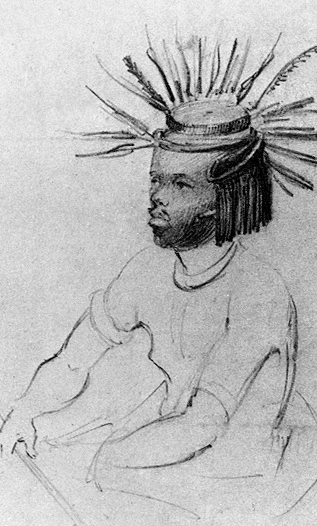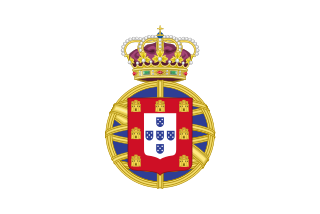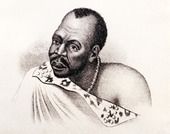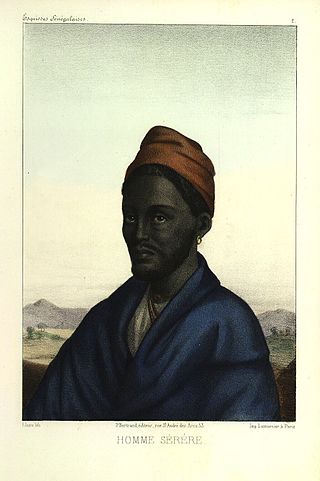
Ferdinand I was King of the Two Sicilies from 1816 until his death. Before that he had been, since 1759, King of Naples as Ferdinand IV and King of Sicily as Ferdinand III. He was deposed twice from the throne of Naples: once by the revolutionary Parthenopean Republic for six months in 1799, and again by a French invasion in 1806, before being restored in 1815 at the end of the Napoleonic Wars.

Clarence House is a royal residence on The Mall in the City of Westminster, London. It was built in 1825–1827, adjacent to St James's Palace, for the royal Duke of Clarence, the future King William IV.

The Thembu are Xhosa people who lived in the Thembu Kingdom.

Mount Frere, officially KwaBhaca, is a town located in the Eastern Cape province, previously known as the Transkei region, of South Africa. KwaBhaca is situated between Kokstad and Mthatha along the N2 road about 100 km north east of Mthatha. It is administered by the Alfred Nzo District Municipality and the villages are ruled by the Tribal chief with intermediary borders.
A paramount chief is the English-language designation for a King/Queen or the highest-level political leader in a regional or local polity or country administered politically with a chief-based system. This term is used occasionally in anthropological and archaeological theory to refer to the rulers of multiple chiefdoms or the rulers of exceptionally powerful chiefdoms that have subordinated others. Paramount chiefs were identified by English-speakers as existing in Native American confederacies and regional chiefdoms, such as the Powhatan Confederacy and Piscataway Native Americans encountered by European colonists in the Chesapeake Bay region of North America.

The Mpondo People, or simply Ama-Mpondo, is a kingdom in what is now the Eastern Cape. It was established in 1226. The Ama-Mpondo Nation were first ruled by its founder who was King Mpondo kaNjanya who lived around and later the 'Ama-Nyawuza'clan, by nationality referred to themselves as 'Ama-Mpondo'. They are related to other Aba-Mbo kingdoms and chiefdoms in South Africa.

The United Kingdom of Portugal, Brazil and the Algarves was a pluricontinental monarchy formed by the elevation of the Portuguese colony named State of Brazil to the status of a kingdom and by the simultaneous union of that Kingdom of Brazil with the Kingdom of Portugal and the Kingdom of the Algarves, constituting a single state consisting of three kingdoms.

Hintsa ka Khawuta, also known as Great or King Hintsa, was the king of the Xhosa Kingdom, founded by his ancestor, King Tshawe. He ruled from 1820 until his death in 1835. The kingdom at its peak, during his reign stretched from the Mbhashe River, south of Mthatha, to the Gamtoos River, in the Southern Cape.
King Palo kaTshiwo He was the king of the Ama-Xhosa Nation from 1728 until his death in 1755.

The Bhaca people, or amaBhaca, are an Nguni ethnic group in South Africa.

Langalibalele (isiHlubi: meaning 'The blazing sun', also known as Mthethwa, Mdingi, was king of the amaHlubi, a Bantu tribe in what is the modern-day province of KwaZulu-Natal, South Africa.

Nara Singh also known as Chingthanglen Pamheiba and Meetingu Lairen Nonglen Sendreng Manik Khomba, was a ruler of the Kingdom of Manipur. He ruled first as regent from 1834 to 1844 and then as king for a period of six years from 1844 to 1850. His subjects called him ‘Eningthou Nungsiba’ or ‘our beloved king’.

Maad a Sinig Ama Joof Gnilane Faye Joof was a king of Sine now part of present-day Senegal. He reigned from c. 1825 to 1853. He was fluent in several languages. He came from The Royal House of Semou Njekeh Joof. Maad a Sinig means king of Sine in the Serer-Sine language. The term Bur Sine is also used interchangeably with the proper title Maad a Sinig or Mad a Sinig. They both mean king Sine. Bour Sine is usually used by the Wolof people when referring to the Serer kings of Sine. The Serer people generally used the term Maad a Sinig or Mad a Sinig when referring to their kings.

King Madzikane was the founder and a King of the amaBhaca nation. He was the son of the Zelemu King Khalimeshe kaWabana.
The Imidushane clan was founded by one of the greatest Xhosa warriors Prince Mdushane who was the eldest son of Prince Ndlambe, the son of King Rharhabe.
Ncapayi was the king of the Bhaca people between 1826 until his death in 1846. He was the second son from the first wife of King Madzikane, the firstborn being Sonyangwe his elder brother. He resided at his father's royal residence in Mpoza facing the Mganu mountains and also built another residence in the nearby Lutateni. While trying to attack the Mpondo people due to the Maitland treaty he fell off the cliff and died in a place called Nowalala near Ntabankulu in March 1844. Faku ordered he must be killed to save him from pain and agony he had suffered as for days he had plunged beneath the cliff.
Ncapai was the king of the Bhaca people between 1826 until his death in 1845. He was the second son from the first wife of King Madzikane ka Zulu; the first born being Sonyangwe his elder brother. He resided at his father's royal residence in Mpoza, the great place facing Mganu mountains and also built another residence in the nearby Lutateni. While trying to attack the Mpondo people, due to the Maitland treaty, he fell off a cliff and died in a place called Nowalala, near Ntabankulu in March 1846. Faku kaNgqungqushe ordered that he must be killed to save him from the pain and agony he had suffered for days after he had plunged beneath the cliff. Ncapayi is said to have been a ruthless freebooter.

The Mpondomise people, also called Ama-Mpondomise, are a Xhosa-speaking people. Their traditional homeland has been in the contemporary era Eastern Cape province of South Africa, during apartheid they were located both in the Ciskei and Transkei region. Like other separate Xhosa-speaking kingdoms such as Aba-Thembu and Ama-Mpondo, they speak Xhosa and are at times considered as part of the Xhosa people.

Misuzulu Sinqobile kaZwelithini is the reigning King of the Zulu nation. Misuzulu is the second-oldest surviving son of King Goodwill Zwelithini kaBhekuzulu, and Great Wife, Queen Mantfombi Dlamini Zulu. Misuzulu became heir presumptive after the death of his father on 12 March 2021.
Khusela Diko (née Sangoni) is a South African politician, public servant, and communications strategist. She was spokesperson to South African President Cyril Ramaphosa from March 2018 until July 2020, when she was implicated in a high-profile COVID-19 procurement scandal and took extended special leave. She was formerly the head of communications for the African National Congress (ANC) from 2016 to 2018 and before that was head of communications for the Gauteng provincial government. She has also served on the Provincial Executive Committee of the ANC in Gauteng, and in December 2022 she was elected to a five-year term on the party's National Executive Committee.













